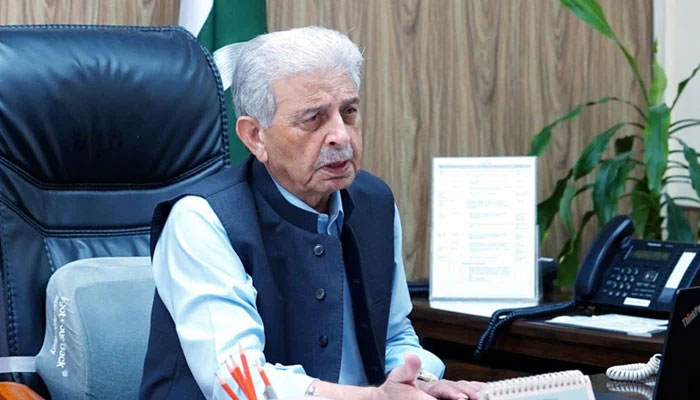16 govt entities to be closed or privatised
Underperforming institutions will face closure within six months, says Rana Tanveer Hussain
ISLAMABAD: The Ministry of Industries and Production has identified 16 out of its 29 affiliated institutions for potential closure or privatisation as part of a sweeping rightsizing and privatisation strategy. The remaining institutions are being evaluated for public-private partnership models.
The government is considering the closure or privatisation of 16 entities including key players like National Fertilizer Company (NFC), Pakistan Automobile Corporation (PACO), and National Productivity Organisation (NPO), as part of a broader effort to streamline operations and improve efficiency.
Minister Rana Tanveer Hussain stated that underperforming institutions will face closure within six months, while others may be restructured under public-private partnerships. The government is focused on improving the industrial sector, with vital entities like the Small and Medium Enterprises Development Authority (Smeda) remaining under state control.
The minister said this while briefing the Senate Standing Committee on Industries and Production, chaired by Senator Aon Abbas Bappi, outlining the government’s plan to improve operational efficiency by phasing out underperforming entities.
He emphasised that institutions failing to meet performance targets within the next six months would face closure. “Institutions showing subpar performance will be shut down,” Hussain said, underscoring the government’s commitment to streamlining operations and bolstering industrial efficiency.
Additional Secretary Asif Saeed Khan stated that six to seven institutions are crucial to the nation’s industrial ecosystem and also highlighted plans to close or privatise the 16 institutions, including Section 42 companies. While the cabinet had initially approved their closure, this decision is under reconsideration following a request for withdrawal. The committee is focused on ensuring that any rightsizing efforts align with national economic and industrial priorities.
The committee discussed the asset portfolios of key institutions, including Pakistan Engineering Company, which faces a debt burden of Rs7 to 8 billion despite owning assets worth Rs19 billion. Republic Motors, with assets valued at Rs10 billion, is also struggling with asset occupation by 28 individuals and plans to enlist a legal team for asset recovery. Utility Stores Corporation, a key player in retail distribution, was also discussed. Despite initial plans to close the stores, the government has since decided to include them in the privatisation list. Of the corporation’s 4,300 stores, 2,400 are operating at a loss, primarily in Balochistan and Gilgit-Baltistan, while 1,900 are profitable.
-
 ‘Stingy’ Harry, Meghan Markle Crack Open A Chasm Despite Donation: ‘Do So At Your Own Peril’
‘Stingy’ Harry, Meghan Markle Crack Open A Chasm Despite Donation: ‘Do So At Your Own Peril’ -
 Research Explores How TikTok’s Recommendation System May Influence Teen Beliefs
Research Explores How TikTok’s Recommendation System May Influence Teen Beliefs -
 Google Wins Approval To Export South Korea’s High-precision Maps After 20 Years—With Strict Conditions
Google Wins Approval To Export South Korea’s High-precision Maps After 20 Years—With Strict Conditions -
 King Charles’ Health Battle: What Has Been Revealed About His Cancer So Far
King Charles’ Health Battle: What Has Been Revealed About His Cancer So Far -
 Bad Bunny Tugs At People’s Heartstrings With A Generous Act Of Love: ‘Our Staff Didn't Even Realize’
Bad Bunny Tugs At People’s Heartstrings With A Generous Act Of Love: ‘Our Staff Didn't Even Realize’ -
 Paramount Wins Warner Bros. Bidding War As Netflix Abandons Deal: Here’s Why
Paramount Wins Warner Bros. Bidding War As Netflix Abandons Deal: Here’s Why -
 Cardi B Finally Responds To Accusations About Destroying 'SNL' Set After Nicki Minaj Joke
Cardi B Finally Responds To Accusations About Destroying 'SNL' Set After Nicki Minaj Joke -
 Gorton And Denton By-election Result: Green Party Defeats Labour In Blow To Keir Starmer
Gorton And Denton By-election Result: Green Party Defeats Labour In Blow To Keir Starmer -
 Jack Dorsey Cuts 4,000 Roles, Says AI Requires Smaller Teams
Jack Dorsey Cuts 4,000 Roles, Says AI Requires Smaller Teams -
 Reggie Bannister Health Takes ‘difficult Turn’ Amid Dementia, Parkinson’s Battle
Reggie Bannister Health Takes ‘difficult Turn’ Amid Dementia, Parkinson’s Battle -
 'Humble Traitor' Rob Rausch Makes Unexpected Move After Betraying Maura Higgins In Season 4
'Humble Traitor' Rob Rausch Makes Unexpected Move After Betraying Maura Higgins In Season 4 -
 Sarah Ferguson Drops An Accusation Against Andrew? ‘He Just Wants Leverage’
Sarah Ferguson Drops An Accusation Against Andrew? ‘He Just Wants Leverage’ -
 Anthropic Rejects Pentagon Military AI Proposal, Holds Firm On Safety Guardrails —What’s Next?
Anthropic Rejects Pentagon Military AI Proposal, Holds Firm On Safety Guardrails —What’s Next? -
 'Traitors' Reunion Drama: Rob Rausch Defends Strategy, Makes Shocking Revelation After Victory
'Traitors' Reunion Drama: Rob Rausch Defends Strategy, Makes Shocking Revelation After Victory -
 Inside Hillary Clinton’s Epstein Testimony: Key Takeaways And Highlights Explained
Inside Hillary Clinton’s Epstein Testimony: Key Takeaways And Highlights Explained -
 'Too Hard To Be Without’: Woman Testifies Against Instagram And YouTube
'Too Hard To Be Without’: Woman Testifies Against Instagram And YouTube




